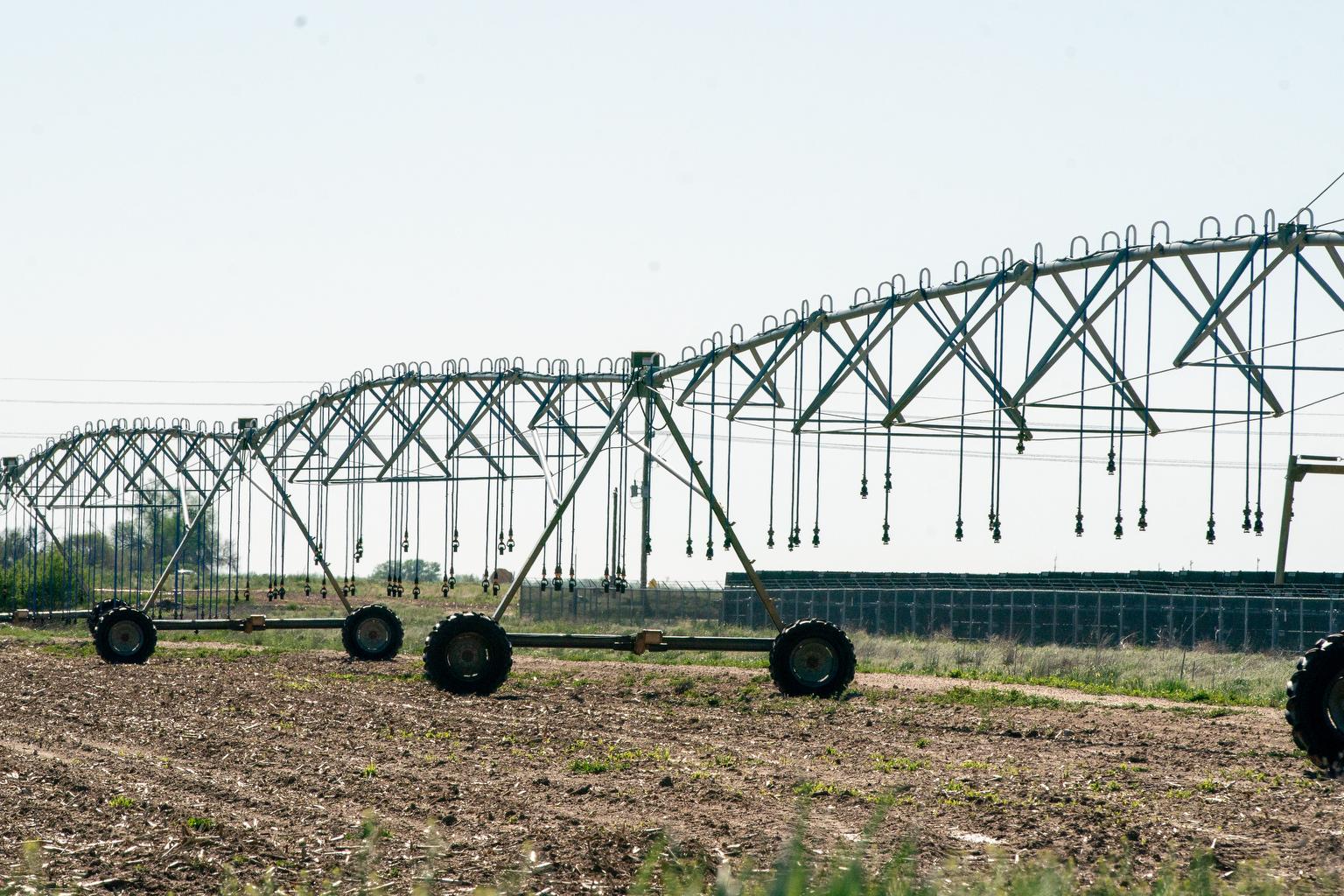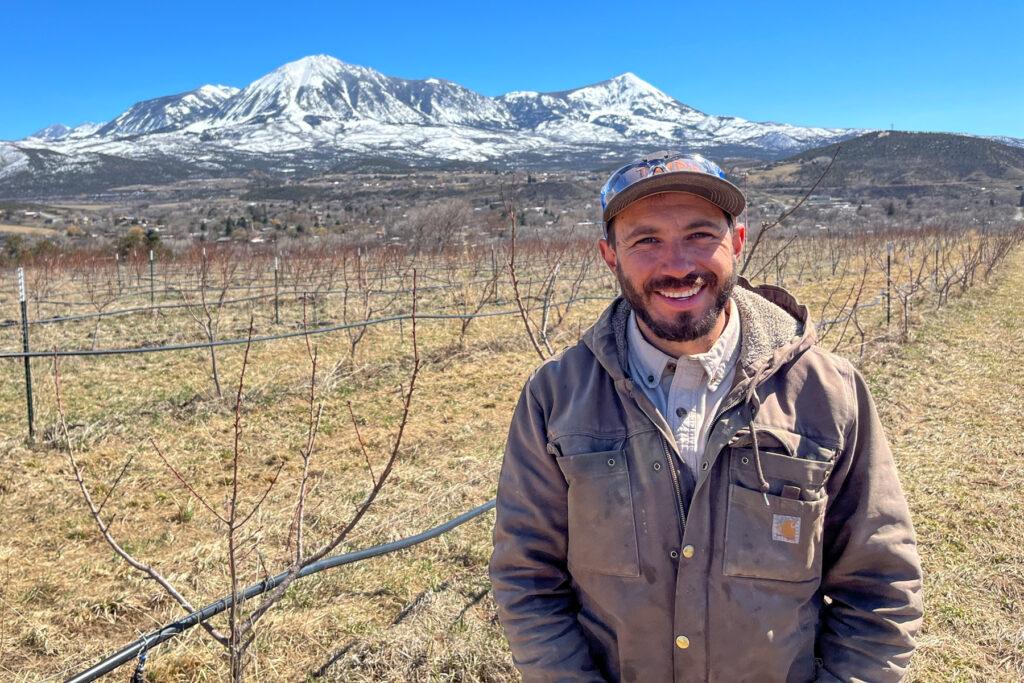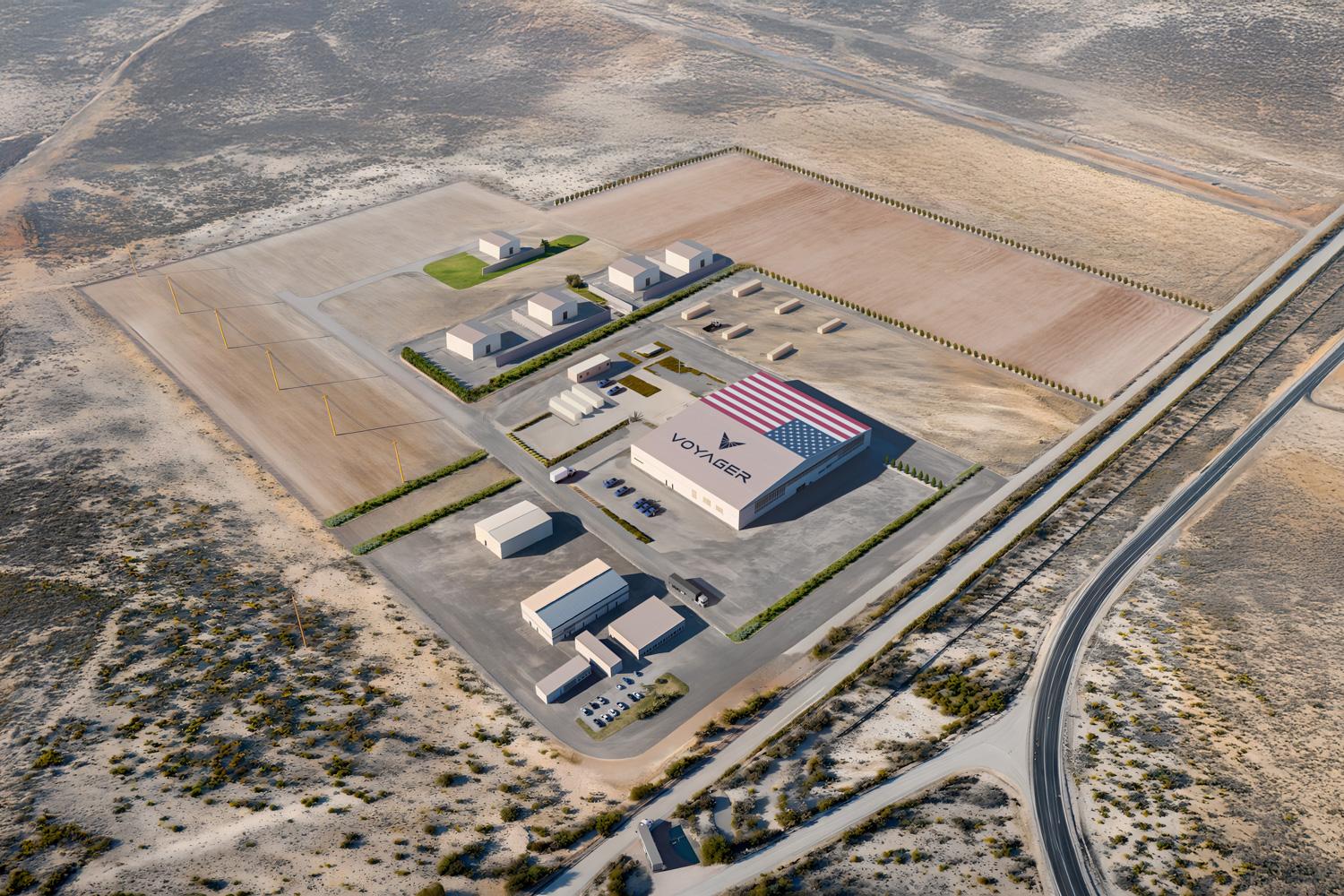
This year’s fruit crop has contained some highs and lows for Harrison Topp.
“We had a little bit of a leaner cherry crop, but looks like a pretty darn good peach crop and then sort of a mixed bag when it comes to apples,” he recently told CPR News over the phone. He’s one of the owners of Topp Fruits, an organic Farm in Paonia, in the North Fork Valley. “Not the best year we've seen, but, but hopefully we’ll squeak through just fine.”
For the last couple of years, Topp Fruits has gone into its growing and harvest seasons without an updated federal farm policy and the safety net it provides. But this year, at least some updates from the long-overdue Farm Bill have squeaked into law.
Still, Topp and other Colorado agriculture producers have had a clear message for Congress. “We need a Farm Bill now.”
Republicans’ tax and spending package, known as the One Big Beautiful Bill, included a so-called skinny Farm Bill, covering commodity prices, disaster assistance and crop insurance among other things. It updated crop reference prices and increased support levels for agriculture risk coverage and price loss coverage.
Some of the tax provisions in the bill would also benefit producers.
The American Farm Bureau Federation applauded passage of the bill, saying in a statement that it modernizes important farm safety net programs and delivers desperately needed reference price increases.
The National Cattlemen’s Beef Association highlighted changes to the estate tax that could benefit ranchers.
“I’m proud that this legislation protects farms and ranches from being split up and sold off to pay a high Death Tax bill. I’m also glad the One Big Beautiful Bill protects pro-business tax deductions for cattle producers, lowers our taxes overall, and funds programs like the Livestock Forage Disaster Program, Livestock Indemnity Program, voluntary conservation programs, and invests in keeping foreign animal diseases out of the United States,” said NCBA President Buck Wehrbein in a statement.
For his part, Topp takes a glass-half-full attitude toward the skinny Farm Bill.
“The reality is, I think from the farmer perspective, it's been really challenging to keep track of what's in there that's going to impact us,” he said. “We reached out to a number of the farm groups that we participate with and everybody was saying, ‘we're still working on it, we're still working on,’ you know, analyzing what this actually means,” he recalled.

Rocky Mountain Farmers Union is one of those groups parsing the One Big Beautiful Bill’s ag provisions. President Chad Franke said – like everything with the bill – there are pluses and minuses.
“We definitely appreciate the updated reference prices. Some of the changes Farm Bill-related in it are very good for our members and producers,” said RMFU president Chad Franke. “But we're kind of frustrated that it was thrown into this bill instead of a Farm Bill, which should have been reauthorized over two years ago.”
He’s worried that with this fix, Congress won’t pass a true Farm Bill until after the midterm elections in 2026. He said past Farm Bills have come together with bipartisan support because the legislation brings together a coalition of rural and urban interests regarding farm and food policy.
“When you start stripping out parts and pieces that people support, you may not get enough support to get the entire thing passed,” Franke said.
He’s not the only one concerned.
“This is very detrimental to the coalition and to really the long-standing tradition of how that legislation gets enacted and gets done,” said Pete Kolbenschlag, executive director of the Colorado Farm and Food Alliance. He worries that the skinny version included in the Big Beautiful Bill primarily focused on the priorities of larger producers and commodity agriculture, and not those of medium or small-sized farms in places like Colorado.
And it left out issues important to his group. “It's detrimental to a lot of things that are important to us, like so-called climate-smart agriculture, like funding rural renewables, like supporting rural healthcare,” Kolbenschlag added, noting behavioral health issues are at a crisis level in rural communities.
Sen. John Boozman of Arkansas is chair of the Senate Agriculture committee. He’s well aware that “all kinds of policies related to the farm economy” were not included in the Republican tax and spending package. He thinks it’s still possible to pass a Farm Bill this Congress.
“The sticking point has always been the big spending of the risk management tools. We've got that out of the way, so now we can concentrate on these other things,” Boozman told CPR News. “These other things really aren't very expensive, so we don't have to worry about coming up with a humongous amount of money.”
The One Big Beautiful Bill also took dramatic action on another expensive sticking point that has contributed to the stalemate over a new Farm Bill — federal food assistance. The budget bill cuts SNAP, the federal food aid program, by $186 billion. It’s a partisan cut that’s not sitting well with Democrats and could be one of the hurdles to getting a bipartisan Farm Bill passed.
Back in Paonia, Topp stressed that a strong safety net is important for farmers, since farming “isn’t a business that has a long way to fall.”
And that’s why he wants to see a five-year Farm Bill reauthorized.
But for all the agriculture provisions in the One Big Beautiful Bill, it’s the cuts it makes to Medicaid, and how that will impact rural hospitals, that he’s most worried about.
“We do extemporaneous trips to the hospital, for one reason or another, with some frequency. If we didn't have a hospital … that would be really devastating to us,” he said. “God forbid something did happen on the farm. God forbid, one of our employees got hurt. What is the difference between getting to a hospital that is 10 to 15 minutes away and getting to a hospital that's an hour away? I mean, it's a huge difference. And that's something that is really weighing heavily on the way I've been thinking about this bill.”







